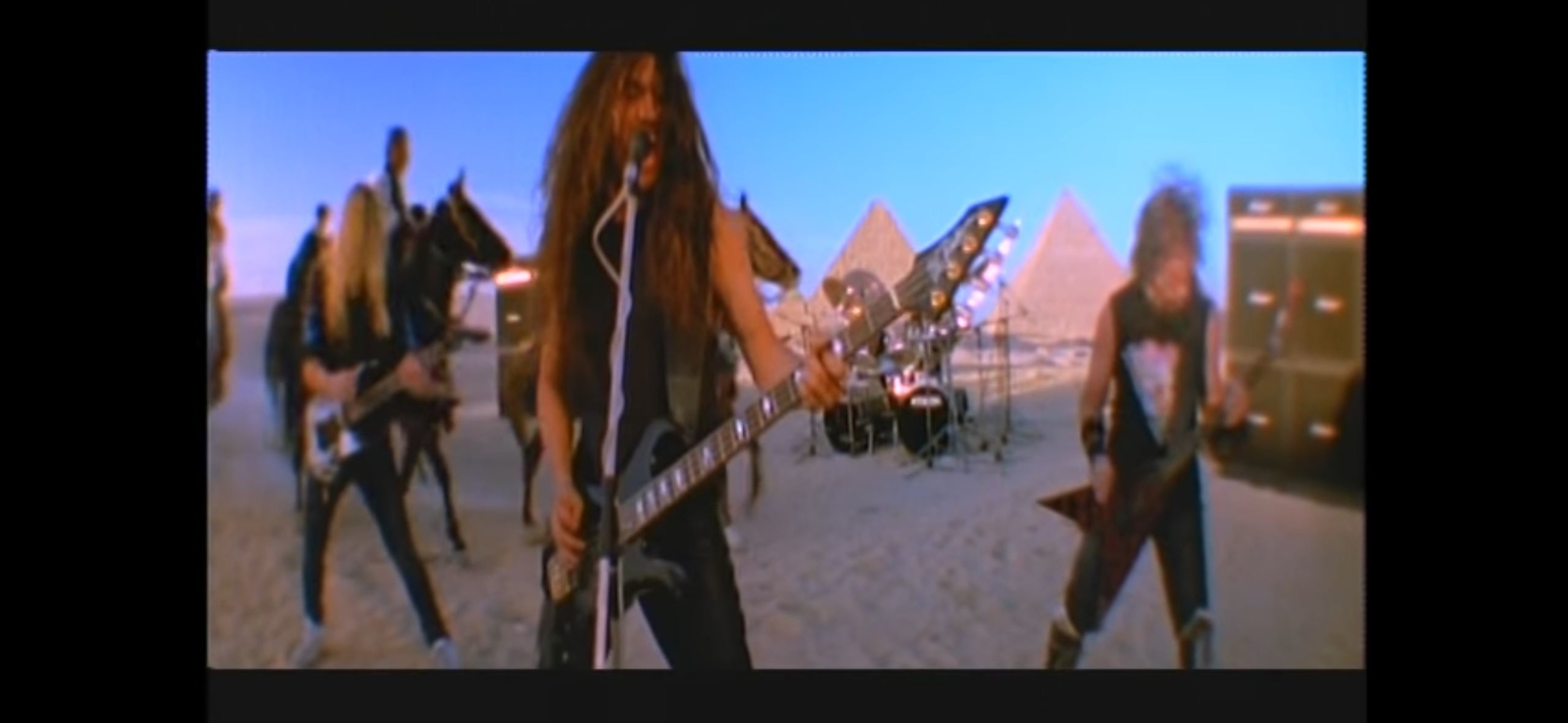The decade when heavy metal became mainstream and had an identity crisis

Metal crossed over into the mainstream in the ‘80s. As with hip hop, it could be argued that heavy metal was born in the early ‘70s and possibly even has roots in the ‘60s. MIT’s crash course on heavy metal argues that Black Sabbath was the first “proper heavy metal band,” and coming into the ‘80s, the British influence continued. The birth of heavy metal’s second generation came with acts like Iron Maiden who, with other bands of their generation, effectively eliminated influence of the blues, producing a louder, faster, and aggressively bombastic sound.
“While taking cues from Hard Rock, Metal took its musical ideas into new territory, where an emphasis on volume and distortion came to represent a vision of power that resonated deeply with Metal’s overwhelmingly male fan base,” Teach Rock says on the roots of heavy metal. Socially, as Encyclopedia Britannica notes, “political and academic groups sprang up to blame the genre and its fans for causing everything from crime and violence to despondency and suicide. But defenders of the music pointed out that there was no evidence that heavy metal’s exploration of madness and horror caused, rather than articulated, these social ills.”
Early in the 80s, heavy metal had an “identity crisis” with a rift between what were known as “hair metal” bands and the wave of thrash metal, which left heavy metal by the end of the decade “schizophrenic, developing in two converging directions with each pushing conventions to extremes.” Hair metal “sold good times through simple song structures with lyrical content with a seemingly singular focus on fast cars, partying, and the good life.” Thrash metal, on the other hand, drew more from the original metal bands and “was the most extreme incarnation of heavy metal to date. Musically more rhythmic than melodic, its primary concern was complex riffs played at breakneck speed, pioneered by Metallica’s James Hetfield, Megadeth’s Dave Mustaine, and Slayer’s tandem of Kerry King and Jeff Hanneman.” The thrash subgenre challenged the norm, and bands like Metallica, Slayer, and Megadeth openly expressed their vitriol and discontent through socially conscious and politically critical lyrics. Those bands were particularly effective in sustaining their success for decades, with Metallica, in particular, having sold over 100 mn records over more than 30 years.
Despite our love for Metallica, we chose to lead this section with a screen grab from Slayer’s Seasons In the Abyss (runtime 06:36), the band’s first-ever music video, which was filmed in Cairo, and even though the album was out in 1990.